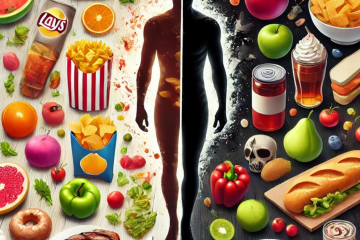Understanding Macronutrients: A Guide to Athlete Nutrition
What are Macronutrients?
Macronutrients are the essential nutrients that provide energy to our bodies. They include carbohydrates, proteins, and fats. Each macronutrient plays a vital role in fueling our daily activities and supporting our overall health and performance.
- Carbohydrates are our main source of energy and are found in foods like grains, fruits, and vegetables.
- Proteins are crucial for building and repairing tissues, and they can be found in foods like meat, poultry, fish, and dairy products.
- Fats are also a source of energy and help in absorbing vitamins. Sources of healthy fats include avocados, nuts, and olive oil.
Understanding macronutrients and incorporating the right balance of them into your diet is key to maintaining good health and optimizing athletic performance.

Importance of Macronutrients in Athlete Nutrition
Athletes rely on macronutrients – namely carbohydrates, proteins, and fats – for energy, muscle repair, and overall performance. Carbs provide quick energy, proteins aid in muscle recovery, and fats offer sustained energy. Balancing these macronutrients is crucial for optimizing athletic performance and recovery. Some athletes may benefit from specific macronutrient ratios based on their sport and training intensity. Proper macronutrient consumption can enhance endurance, strength, and recovery for athletes aiming to perform at their best.
Overview of Carbohydrates for Athletes
Carbohydrates are an essential macronutrient for athletes as they provide the main source of fuel for the body during exercise. They are broken down into glucose, which is used by the muscles for energy. Athletes need an adequate intake of carbohydrates to support their training and performance. Some high-carbohydrate foods include pasta, rice, fruits, and whole grains.

Discover How I Can Help You Lose Weight
How to meal prep – even if you don’t have any nutrition background!
A little-known way to lose weight – you’ll be amazed!
A stupidly simple trick for losing your belly fat.
What the professionals in fitness do when they want to lose weight.
The secrets of losing belly fat. This one will blow you away!
Dive into Proteins for Athletes
Proteins are essential for athletes as they help in repairing and building muscle. Sources of protein include chicken, fish, eggs, and plant-based options like beans and tofu. Athletes need more protein than sedentary individuals to support muscle growth and recovery. It is recommended that athletes consume protein-rich foods within an hour of finishing their workout for optimal muscle repair. Some athletes may also benefit from protein supplements, but it’s crucial to consult a nutritionist before incorporating them into your diet.
Fats – Essential Macronutrients for Athletes
Athletes require fats in their diets as they are a crucial macronutrient for energy production and overall performance. Healthy fats, like those found in avocados, nuts, and olive oil, are vital for athletes as they provide a concentrated source of energy. Incorporating fats into meals can help athletes sustain energy levels and optimize recovery after intense training sessions. Remember, not all fats are created equal; focus on consuming unsaturated fats for better heart health and improved athletic performance.
Balancing Macronutrients in Athlete Diets
Athletes need a balance of carbohydrates, proteins, and fats in their diets to perform at their best. Carbs provide quick energy, proteins help with muscle repair and growth, and fats are essential for overall health. Here’s how athletes can balance their macronutrients:
- Carbohydrates: Make sure to include whole grains, fruits, and vegetables for sustained energy throughout the day.
- Proteins: Include lean sources like chicken, fish, beans, and nuts to support muscle recovery and growth.
- Fats: Opt for healthy fats like avocados, nuts, and olive oil to support hormone production and overall health.
Remember, each athlete may have unique needs based on their sport, training intensity, and body composition, so it’s essential to work with a nutritionist to create a customized meal plan tailored to individual goals and performance.
Macronutrient Timing for Optimal Performance
Timing your macronutrients is crucial for maximizing your performance as an athlete. Carbohydrates are best consumed before and during exercise to provide energy for your training session. Proteins are essential after your workout to support muscle recovery and growth. Finally, fats are beneficial when consumed in moderation throughout the day to provide a steady source of energy. By understanding when to consume each macronutrient, you can optimize your performance and recovery as an athlete.
Hydration Needs for Athletes
Athletes have higher hydration needs compared to non-athletes due to increased sweat loss during physical activity. Water is essential for regulating body temperature, lubricating joints, and transporting nutrients. It is recommended that athletes drink 8-10 ounces of water every 15-20 minutes during exercise to prevent dehydration. Additionally, sports drinks containing electrolytes can be beneficial for athletes engaging in prolonged or intense exercise to replenish lost minerals. Adequate hydration is crucial for optimal athletic performance and overall health.
Micronutrients and Athlete Nutrition
Micronutrients play a vital role in athlete nutrition by supporting overall health and optimal performance. Vitamins and minerals are essential micronutrients that help with functions like energy production, muscle contraction, and recovery. Athletes need to ensure they are getting an adequate amount of micronutrients through a balanced diet to maintain peak performance and prevent deficiencies. Including a variety of nutrient-rich foods in your meals can help you meet your micronutrient needs for optimal athletic performance.
Conclusion: Achieving Peak Performance through Macronutrient Balance
To achieve peak performance as an athlete, it’s crucial to maintain a balanced intake of macronutrients – carbohydrates, protein, and fats. Carbs provide quick energy, proteins aid in muscle repair and growth, while fats are essential for hormone function. By ensuring you have the right proportions of these macronutrients in your diet, you can enhance your athletic performance and recovery. Remember, proper nutrition is key to reaching your peak potential as an athlete.



0 Comments